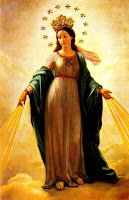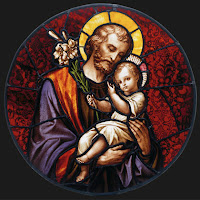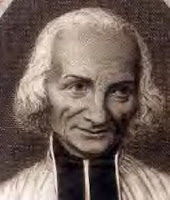


Both Christmas and New Year’s day fall on Sundays this year and I was surprised that the Mondays following them were not declared as non working holidays. I raised this up in a conversation and a lady said to me: Father, kahit yung January man lang sana ay ideclare na holiday. I wondered why the preference for Jan 2 over Dec. 26. The answer came: Father, mas maraming puyat sa New Year kaysa Pasko. The answer made me think: it seems that New Year’s eve is becoming more popular than Christmas eve. I could validate that by the fact that most of my staff would prefer to be home on New Year’s day than on Christmas. There seems to be greater excitement and activity in New Year’s day. In fact, more rituals are observed tonight than on Christmas night. On Christmas night, all we had would be the midnight Mass and the Noche Buena. Tonight, after the Mass would be the waiting for the actual midnight with the lighting of firecrackers, food, and all night partying. Of course, there would be the rules for tonight’s meal: round fruits on the table, fish, meat, no chicken (because the manok is isang kahig isang tuka). Clothes would definitely be polka dots, pockets filled with coins, jumping up and down at the stroke of midnight (believe me it does not work), house cleaned and brightened up…and many more. All these customs and beliefs meant to ensure a prosperous year to come. Yesterday, someone asked me: Father, ano ba ang magandang feng sei para sa year of the dragon. I answered: Hindi ako naniniwala sa feng sei. Ang Feng sei ay labag sa unang utos sa 10 commandments. She asked back: Bakit Father, di ba Chinese ka? And I responded: Kristiyano muna ako bago maging Instik.
I think, tonight is the night when we should give witness to our own Faith in Christ. We have been talking about faith during the days that led to Christmas. And we even heard the Holy Father saying: Faith in Jesus Christ is the way to arrive definitively at salvation. I think somehow, we accept the principle but what we do tonight will reveal if we really believe in Christ. On whom do you put your faith? If you truly believe in the Lord Jesus, then why do you have to subject yourself to superstitious practices? Para makasigurado? Are you not confident that the Lord Jesus is sufficient so that you think that by hanging oranges on your window or lighting fire crackers or eating fish would assure you of a better year? Remember that “when we believe, we freely accept the whole mystery of faith, because the guarantor of its truth is God.” (PF, 10)
How should Christians meet a new civil year? The 1st reading tells us to imitate the Israelites who go to the priests to be blessed in the name of the Lord: The Lord bless you and keep you. The Lord let his face shine upon you And be gracious to you. The Lord look upon you kindly and give you peace. Mark what the Lord declares: So shall they invoke my name upon the Israelites and I will bless them.
In the Holy Gospel we heard: the shepherds went in haste to Bethlehem and found Mary and Joseph, and the infant lying in the manger. The word of God tells us that we must imitate the shepherds to go in haste to the Virgin and St. Joseph because in their company we shall see the infant lying in the manger…that infant whose name is Jesus “for he will save his people from their sins.” It is not in the company of the 12 animals of Buddha that we can be assured of salvation. Only in Christ Jesus will we find this for only Christ is the Savior of the world.
Tonight, as in ever New Year’s night, I challenge you to make that leap of faith. Let go of those practices that give you nothing but false hopes. Come into the presence of the Blessed Sacrament. Entrust your past to his justice and your future to his providence. Hasten to Him tonight and declare that He alone is Lord and there is no other. There is no God but him. “With what attitude should we look to the New Year? We find a very beautiful image in Psalm 130. The Psalmist says that people of faith wait for the Lord “more than those who watch for the morning” (v. 6); they wait for him with firm hope because they know that he will bring light, mercy, salvation. This waiting was born of the experience of the Chosen People, who realized that God taught them to look at the world in its truth and not to be overwhelmed by tribulation. I invite you to look to 2012 with this attitude of confident trust. It is true that the year now ending has been marked by a rising sense of frustration at the crisis looming over society, the world of labour and the economy, a crisis whose roots are primarily cultural and anthropological. It seems as if a shadow has fallen over our time, preventing us from clearly seeing the light of day. In this shadow, however, human hearts continue to wait for the dawn of which the Psalmist speaks.” (Benedict XVI, World Day of Peace 2012)
Tonight, let us profess our faith. Let us wait for the Lord with firm hope because we know that he will bring light, mercy and salvation. And we will not hope in vain. Like the shepherds, we will glorify and praise God for all we had heard and seen will be just as we had been told. The Lord fulfills his promises.




































